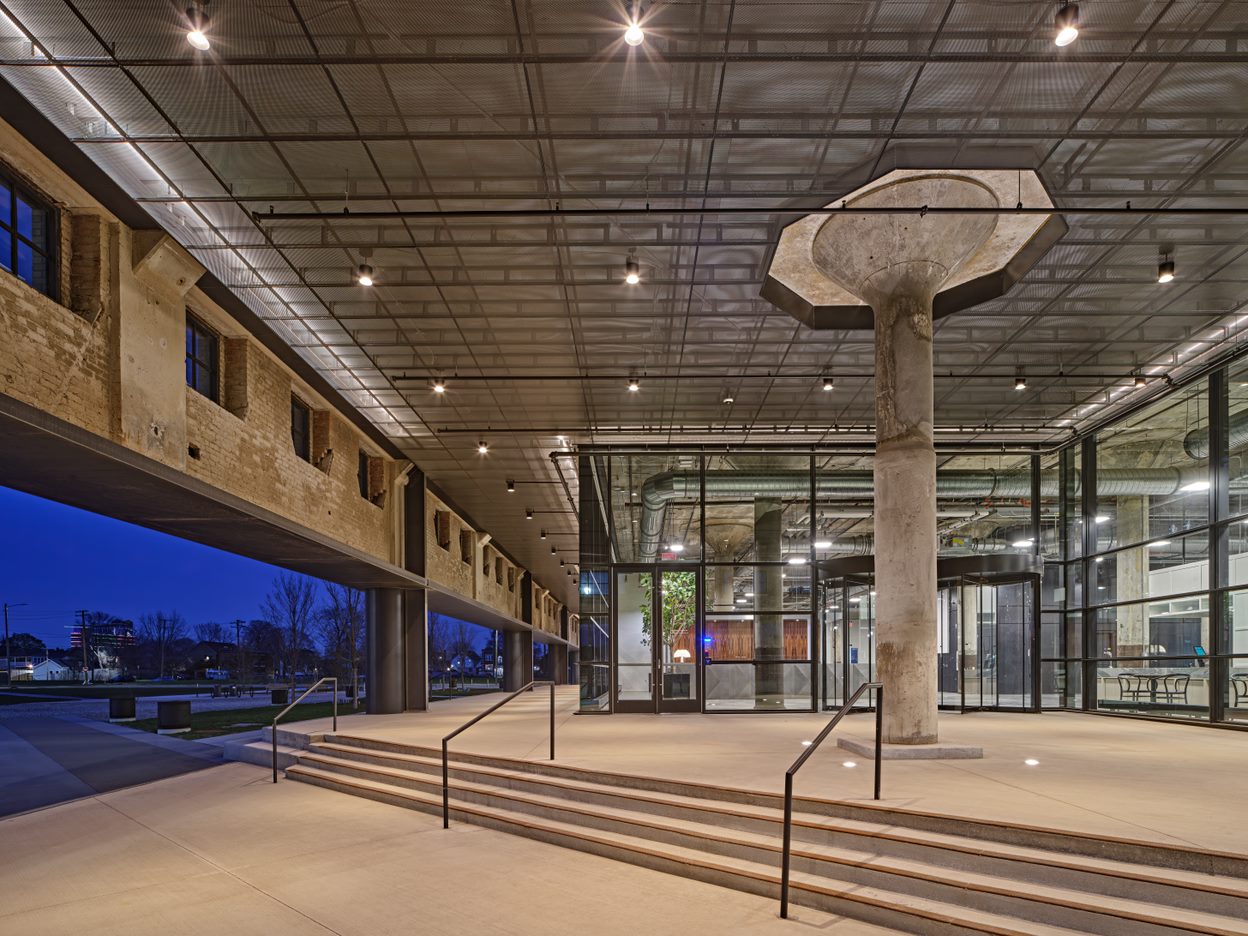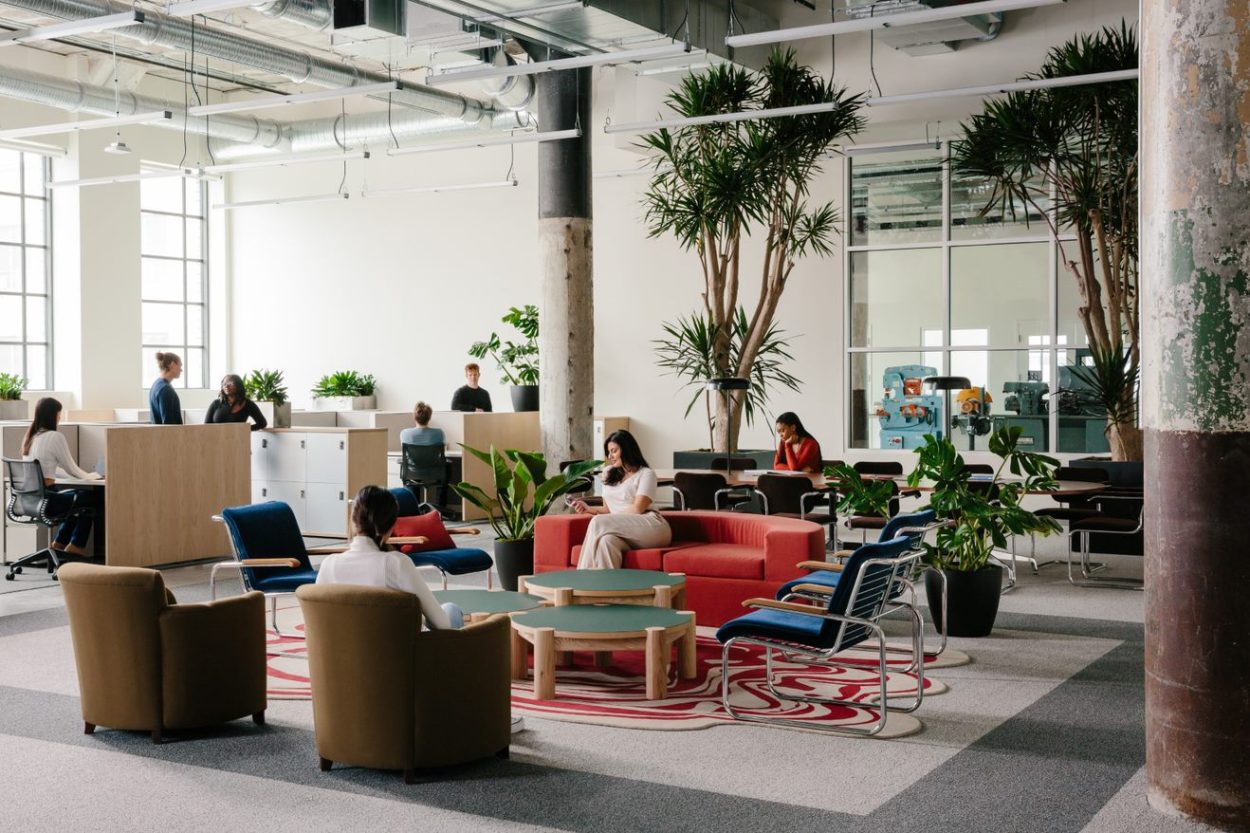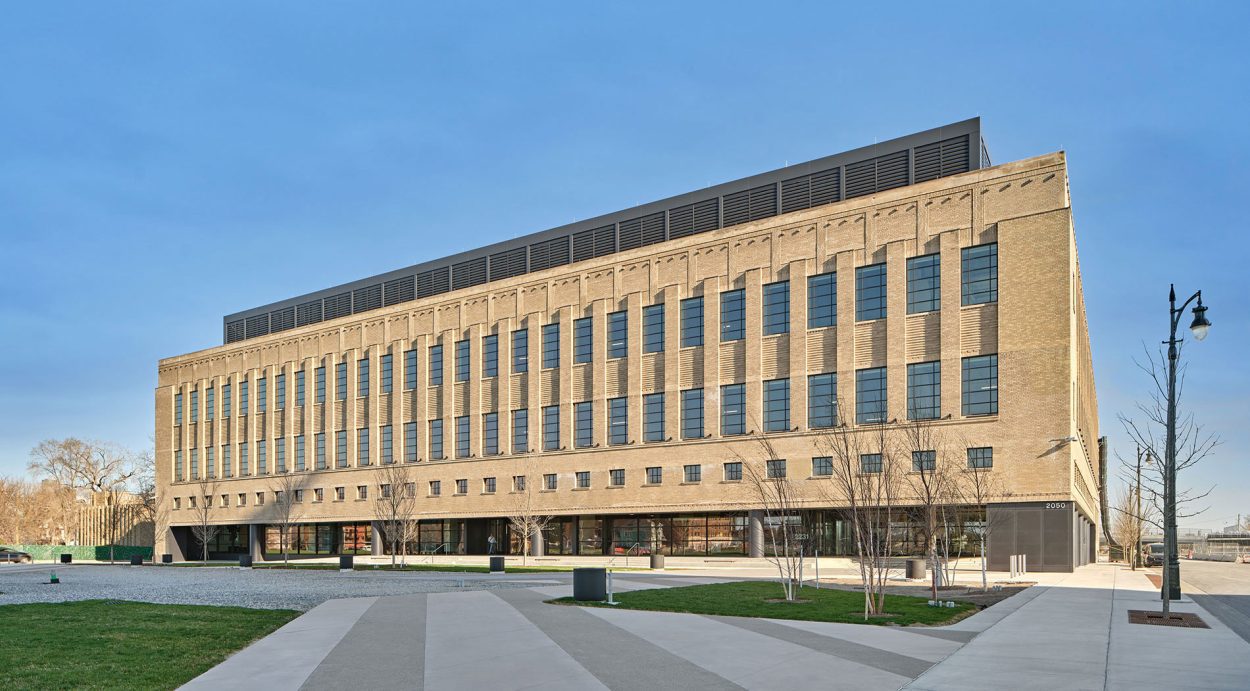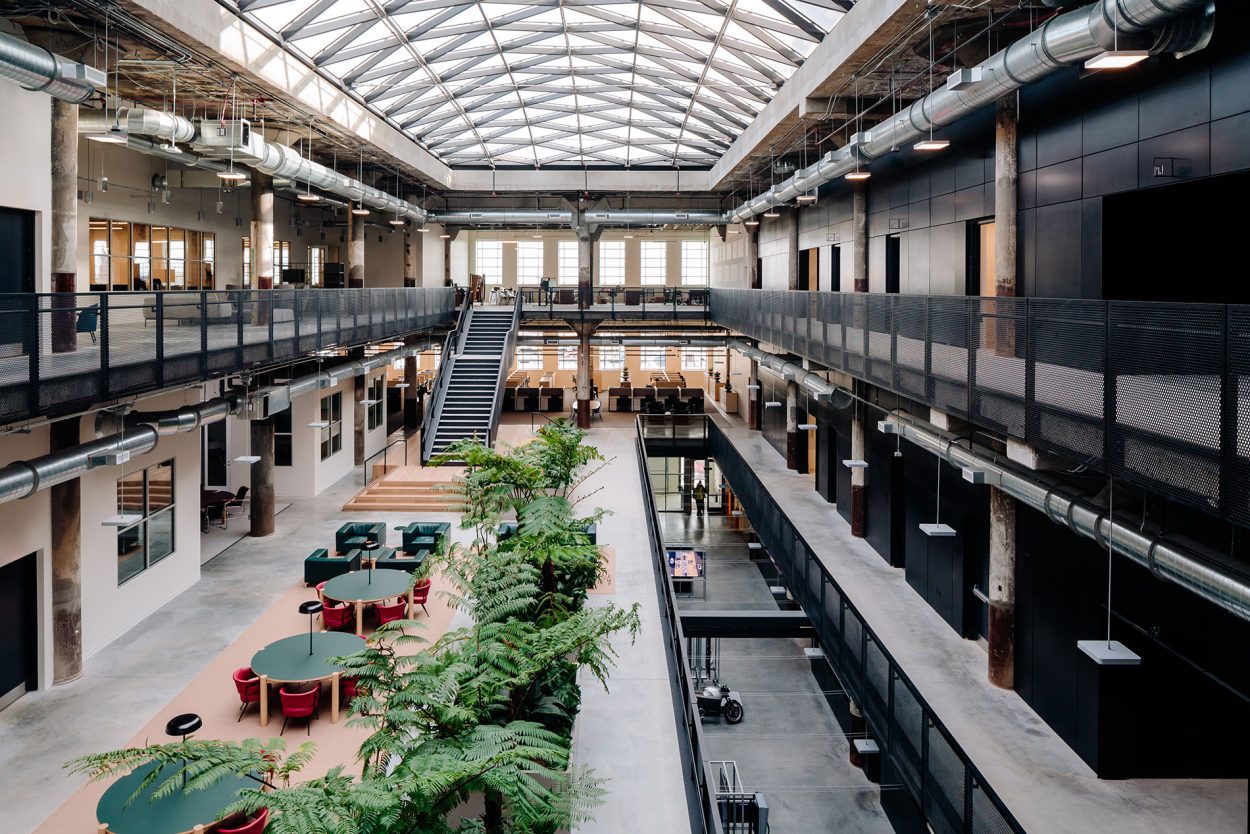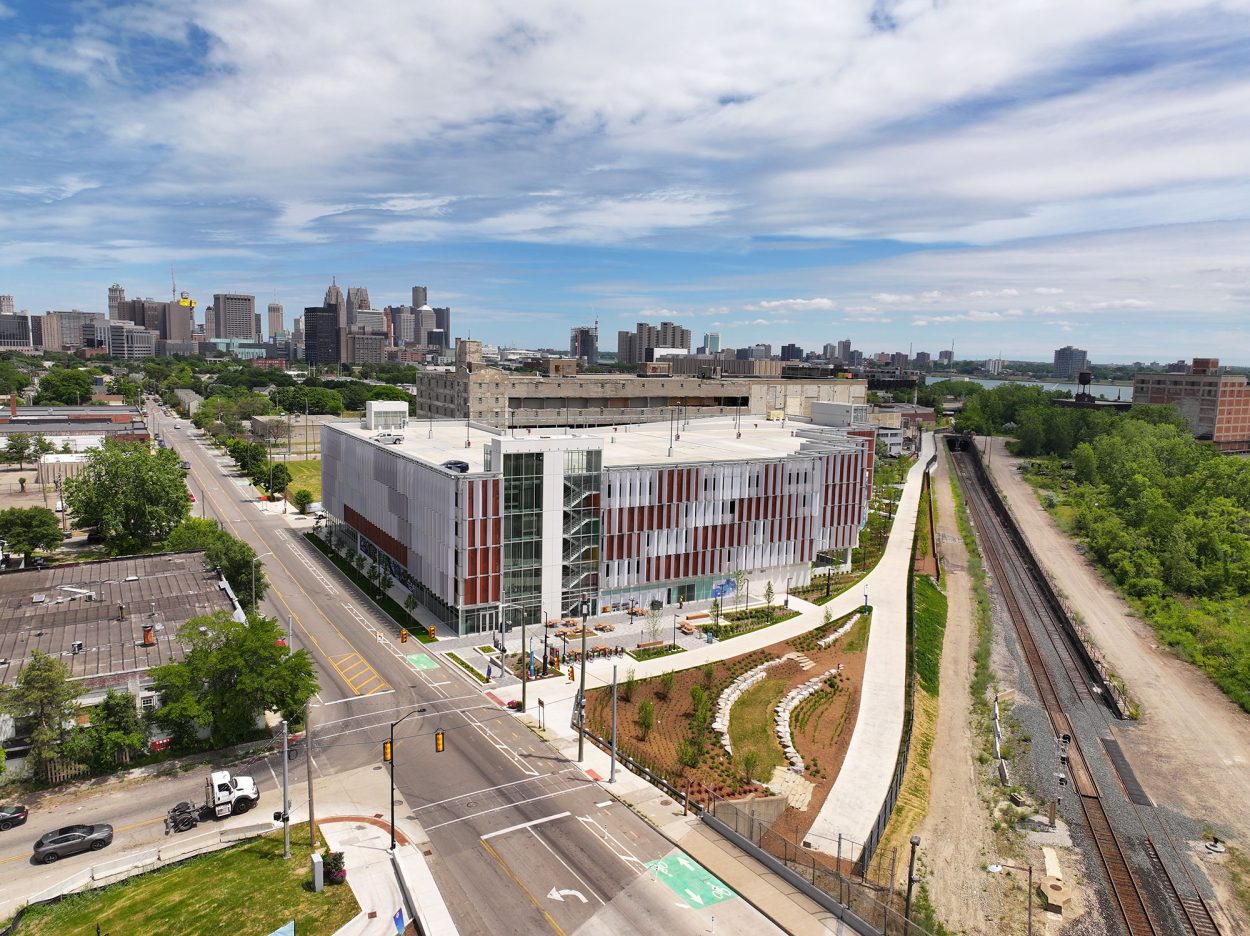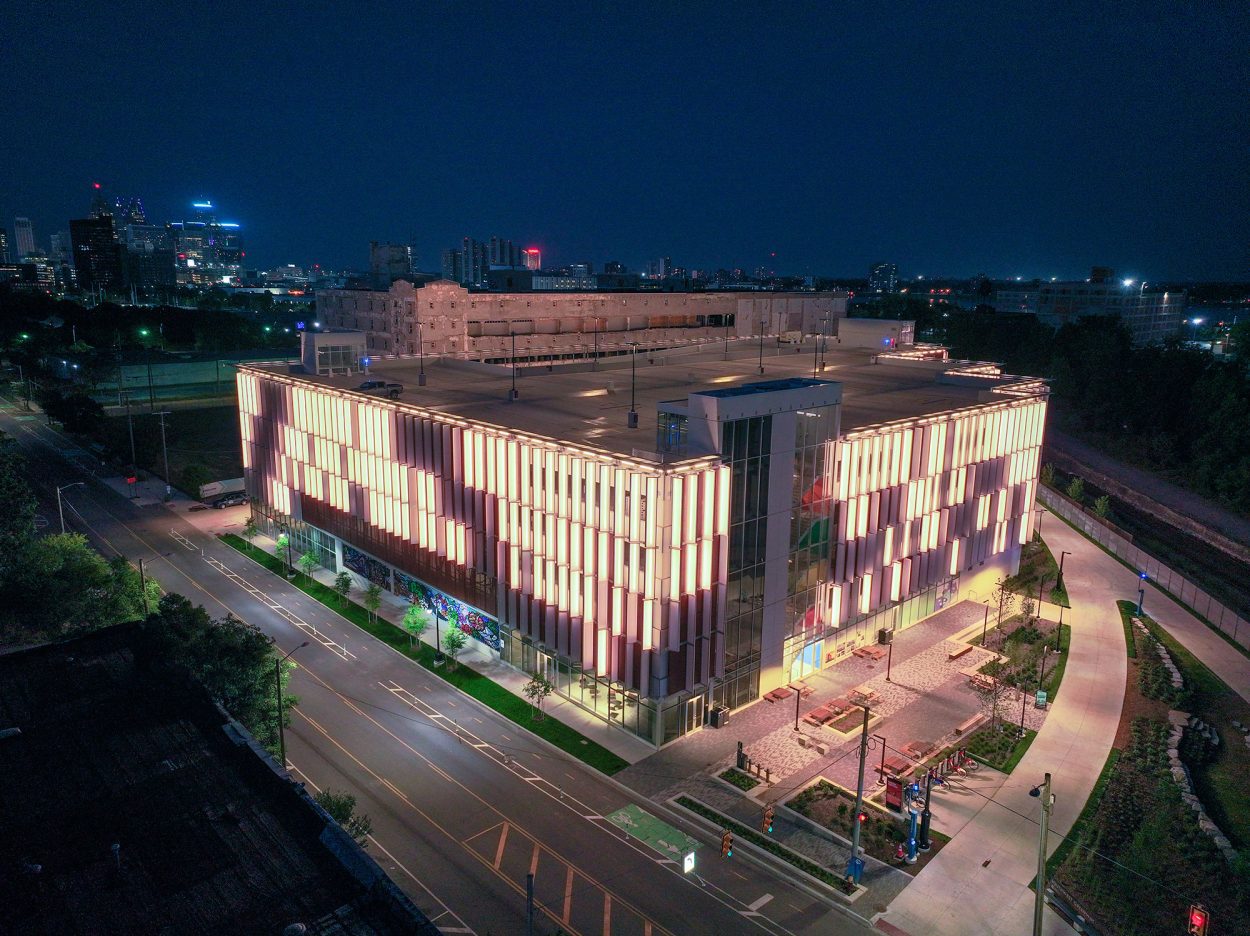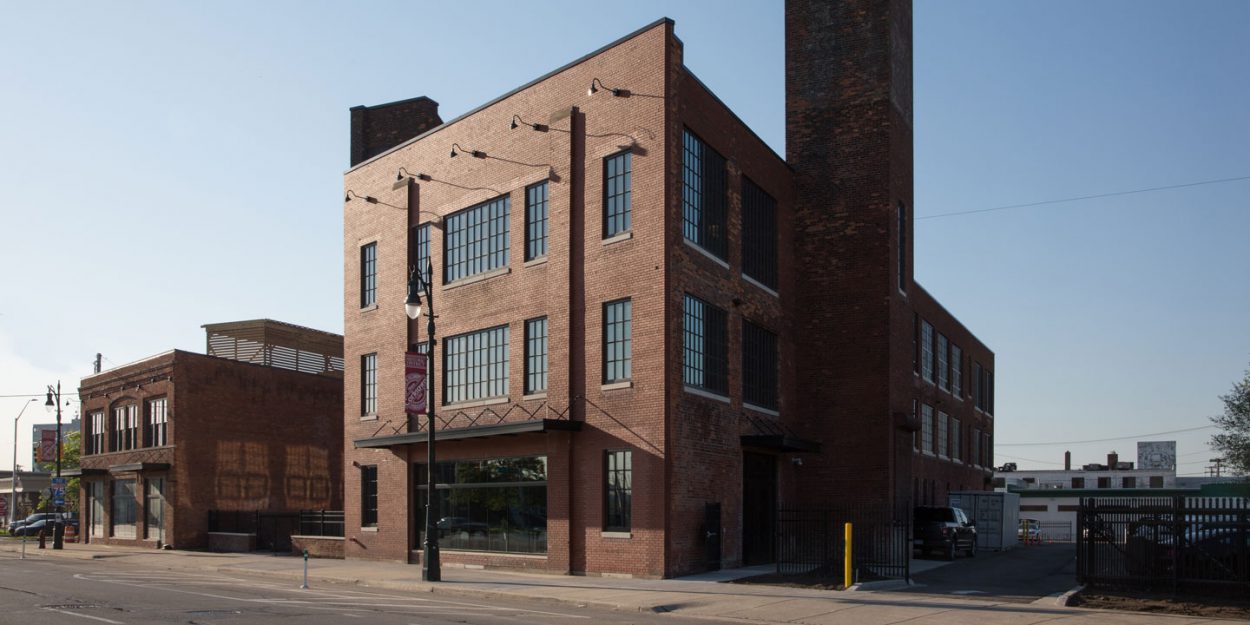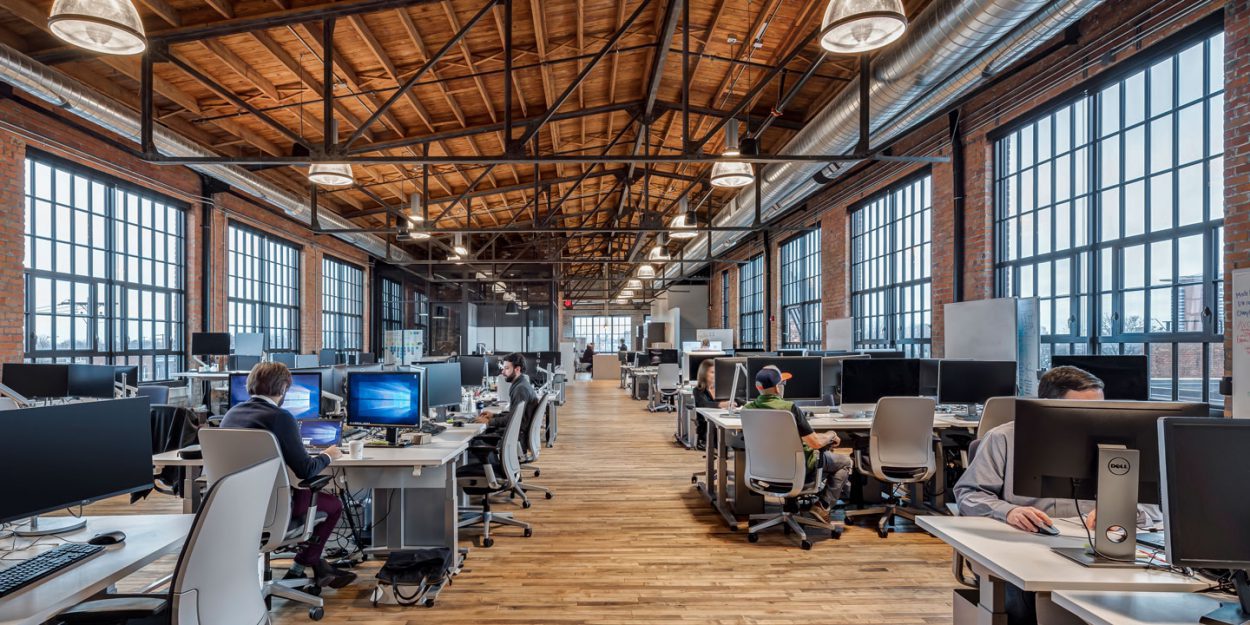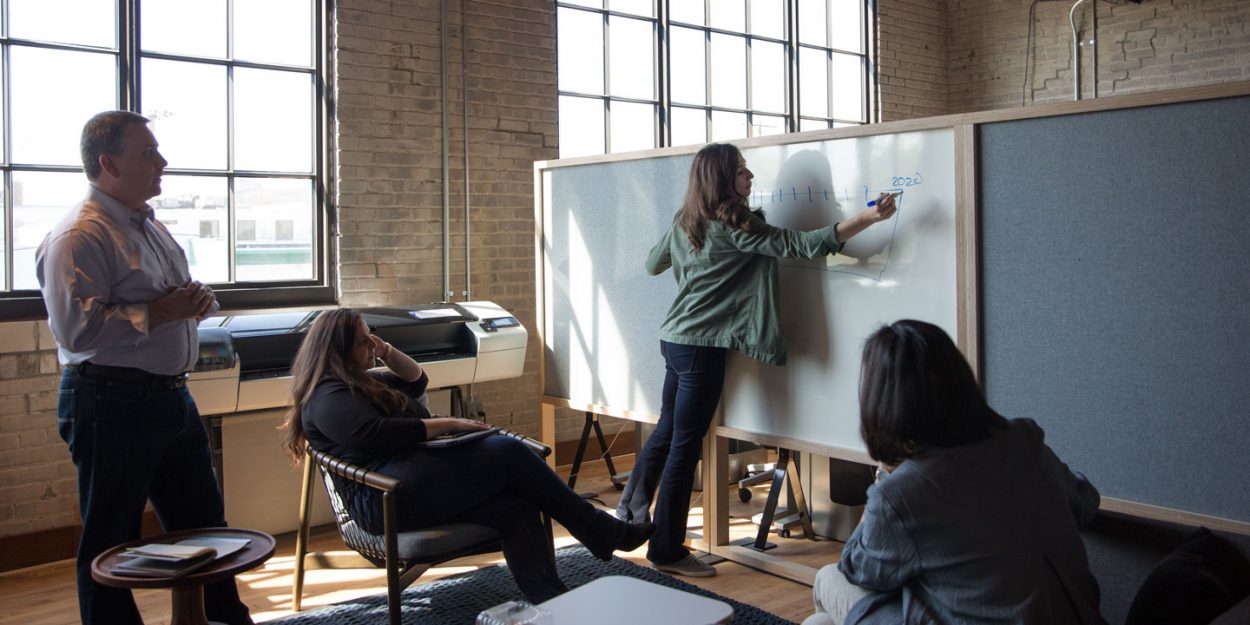The Michigan Central District
While it is best known as the home of Michigan Central Station, the 30-acre Michigan Central district is much more than the revitalization of a single historic building.
This growing tech and cultural hub serves as a powerful convening place and real-world test bed, bringing together innovators, entrepreneurs, artists, and communities to collaborate on advancing a more sustainable, equitable future.
The district includes a state-of-the-art mobility hub, retail, new public parks, multiple outdoor plazas, and 1.2 million square feet of commercial space across multiple restored historic buildings, along with cultural installations and community programming.
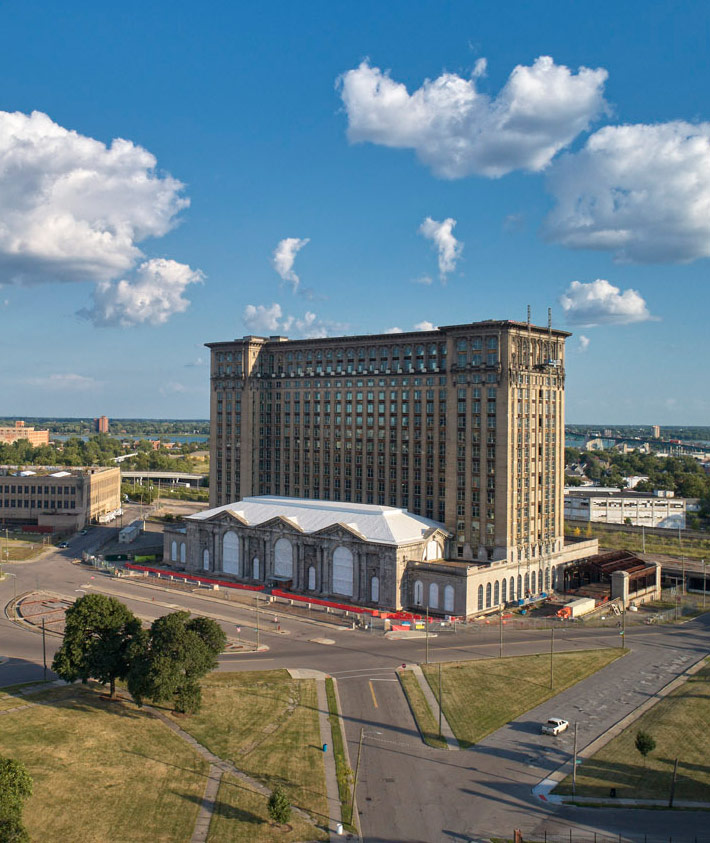
The Station at Michigan Central
Michigan Central Station is the centerpiece of Michigan Central’s 30-acre innovation hub.
Originally opened in December 1913, Michigan Central Station once served as the gateway to Detroit, with more than 4,000 passengers a day at its peak in the 1940s.
Designed by the same architectural firms behind New York’s famed Grand Central, the Station was considered to be one of the grandest depots in the United States. But as travel patterns changed, the Station closed on January 6, 1988. For more than three decades, neglect and vandalism made the vacant structure an infamous symbol of Detroit’s financial decline and disinvestment.
In 2018, Ford Motor Company acquired the property to help Detroit reclaim its status as the world’s home of innovation. The Station will contribute to the Michigan Central innovation ecosystem by accommodating larger tenants and established companies, attracting innovation-oriented teams to technologically sophisticated, flexible workspaces, supporting a diverse tenant base, and providing extensive space for youth STEM programming.
The Station will also provide a unique public destination, worthy of its historical and cultural significance, with distinctive retail, cultural installations, and more. In the near future, The Station will also be a stop on Detroit’s Joe Louis Greenway, a recreational path that unites dozens of neighborhoods to create a more connected Detroit.
Newlab at Michigan Central
Designed by Albert Kahn and opened in 1936 as a post office and mail-sorting facility, the building became the Detroit Public Schools’ Book Depository in the early 1960s. After a devastating fire ripped through the building in 1987, this architectural gem was abandoned and stood empty for more than three decades. In 2018, it was bought by Ford Motor Co. to become a key piece in the Michigan Central vision.
Today, this building is Michigan Central’s engine of innovation and home to an open platform concept where everyone from startups to Fortune 500 companies come together to work on solving the world’s mobility challenges and discovering new technology.
Bagley Mobility Hub
Located at the corner of Bagley and 14th Street, the 6-story structure called Bagley Mobility Hub provides parking and amenities to support workers of Michigan Central as well as serve the community. This state-of-the-art, tech-enabled, 24-7 secure mobility center offers mobility solutions including 1,252 parking spaces for workers and public, e-bike and e-scooter stations, electric charging, and an autonomous vehicle testing area. In addition, the facility is designed as a community-facing resource with streetscape enhancements, public art, ground floor retail and new public amenities, including restrooms, free Wi-Fi, two outdoor plazas and shaded seating areas.
Bagley Mobility Hub serves as a gateway and shared resource for users of Southwest Greenway, which is being constructed by Detroit Riverfront Conservancy to link the new west riverfront Ralph C. Wilson Jr. Centennial Park to The Station.
The Factory
The Factory was the first building to open at Michigan Central.
Once home to the Chicago Hosiery and Detroit-Alaska Knitting Mills factories, it is now the base for Ford Pro.
Retail & Hospitality
The new development will be home to 1.2 million square feet of commercial space, including retail, restaurants, and hospitality. It will be a showcase that supports local arts and culture, a vibrant part of the fabric of the neighborhood, and a must-see destination that welcomes visitors from Detroit, the region, and around the world to experience the cutting-edge in both technology and culture.



